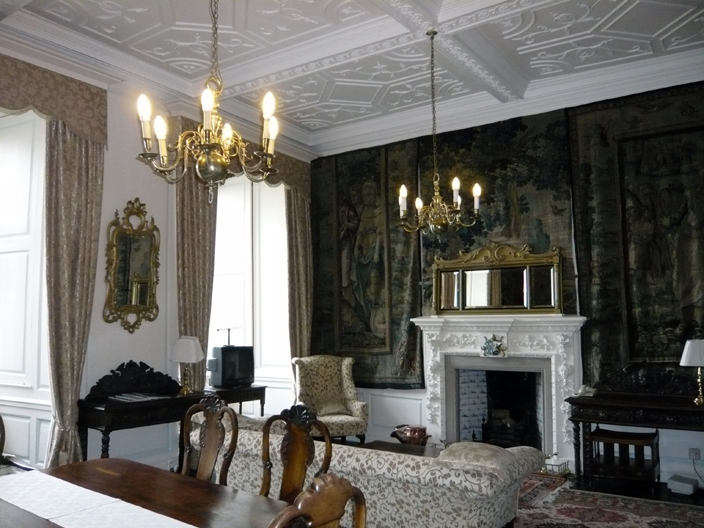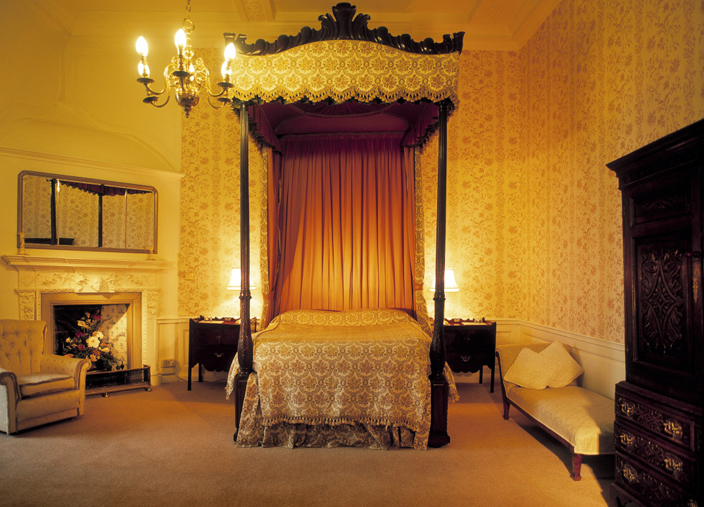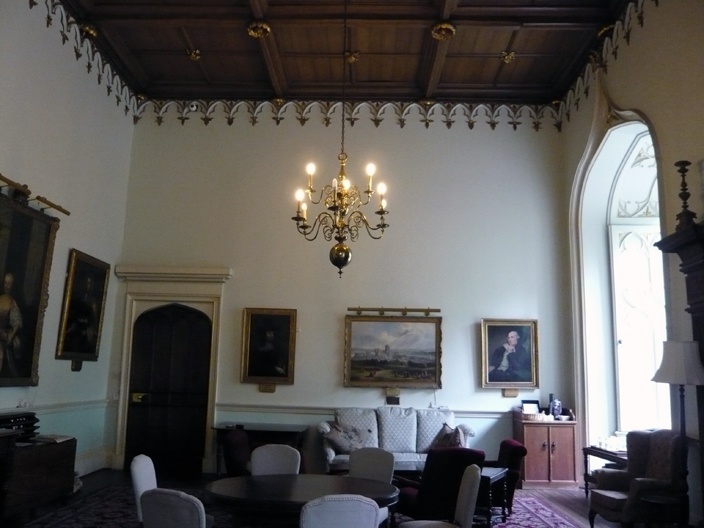
Although the Castle was handed over to the University in 1837, the Bishop retained the right to use these rooms if he wished to reside in the building on sojourns in Durham. The rooms are currently undergoing conservation.
Reserved for the Bishop
The Bishop's sitting room and bedroom are so called because the Bishop of Durham reserved this suite for his own use after the Castle was taken over by the University in the 19th century. They owe their present appearance to Bishop Trevor (1752-1771), whose arms are found in the ornate carving of the fireplace.
The Bishop's sitting room is hung with Flemish tapestries of the mid-seventeenth century similar to those to be found the Senate Room Suite. It also contains a set of early eighteenth-century dining chairs. The adjoining Bishop's bedroom has an impressive four-poster bed dating from around 1760.

The furnishings of the Bishop's bedroom date from the seventeenth century onwards.
© Durham University
The Bishop's Dining Room
The Bishop's dining room, now the Senior Common Room of University College, was decorated in the then-fashionable 'Strawberry Hill Gothic' style by Sanderson Miller for Bishop Butler (1750-1752), whose portrait hangs in the room. Strawberry Hill refers to the first building in England without any medieval remnants to be built in the Gothic style – a trend-setter for the Gothic revival.
The Senior Common Room
The Senior Common Room is the preserve of the senior (non-student) members of the college, who have to be voted in to join. Traditionally, proposed members had to be voted in unanimously, using a system whereby everyone could see who had voted but not whom they had voted for. Even minor opposition to a new member would prevent them from being allowed to join.
Today, although voting no longer takes place, members have the right to express reservations about any proposed member that is felt inappropriate.


